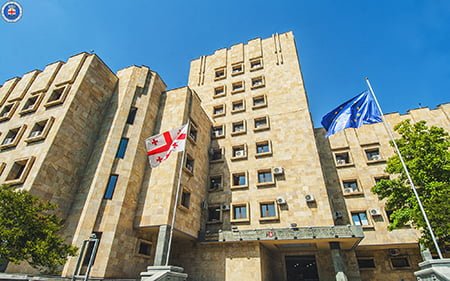
Prosecutors Probe Recent Presidential Pardon
On September 20, the Georgian Prosecutor’s Office has opened an investigation into alleged abuse of power into recent presidential pardon of convicts, including Ramaz Devadze, Aslan Bezhanidze and Zurab Nadiradze, which has caused outcry.
The Prosecutor’s Office said that the investigation has been launched under article 332 of the Criminal Code of Georgia, involving abuse of official powers by an official or by a person equal thereto to the detriment of public interests that is punished by imprisonment for up to three years.
In a statement of September 20, the President’s Administration welcomed launching of the investigation as “the only correct way” amid “grave defamatory allegations.”
Political assessments
Launch of investigation into the issue of pardoning triggered mixed assessments from the opposition and the ruling party.
Georgian Justice Minister Tea Tsulukiani finds “some question marks” in the recent presidential pardons. Tsulukiani wondered how the President of Georgia, who was in a regular contact with the Justice Ministry, trying not to pardon those inmates posing threat to the society during her earlier pardons, could have made such a decision.
Welcoming the President’s self-imposed moratorium on pardoning “as an apparently correct decision,” Tsulukiani said this moratorium should not last long to ensure other inmates are not deprived of their right to be pardoned.
Georgian Dream lawmaker, Sophio Kiladze said that “pardoning of murderers by the President of Georgia was not a correct step.” According to Kiladze, “the Prosecutor’s Office has launched investigation to find out whether there were any signs of crime”. “We will closely follow the process,” Kiladze added.
MP Salome Samadashvili of the United National Movement said that the Prosecutor’s Office does not enjoy public trust and therefore, the issue should be investigated in the parliamentary format.
MP Irma Nadirashvili of the European Georgia party noted that it would not be correct if the investigation finds Dimitri Gabunia, President’s Parliamentary secretary guilty, because the entire “responsibility” for the process should be laid on Salome Zurabishvili.
In response to harsh criticism, on September 18, Salome Zurabishvili self-imposed moratorium on pardons.
On the same day, the opposition European Georgian party called on the Prosecutor’s Office to launch investigation within “reasonable timeframes.” Citing their “reliable source”, the European Georgia said that persons interested in the issue of pardoning were communicating with President’s Parliamentary Secretary Dimitri Gabunia.
However, President Zurabishvili flatly denied “speculations” that someone else from her administration was influencing the pardons in her remarks, saying that pardoning is “a subjective, personal decision of the President under exercising her own [constitutional] duties.”
This post is also available in: ქართული Русский